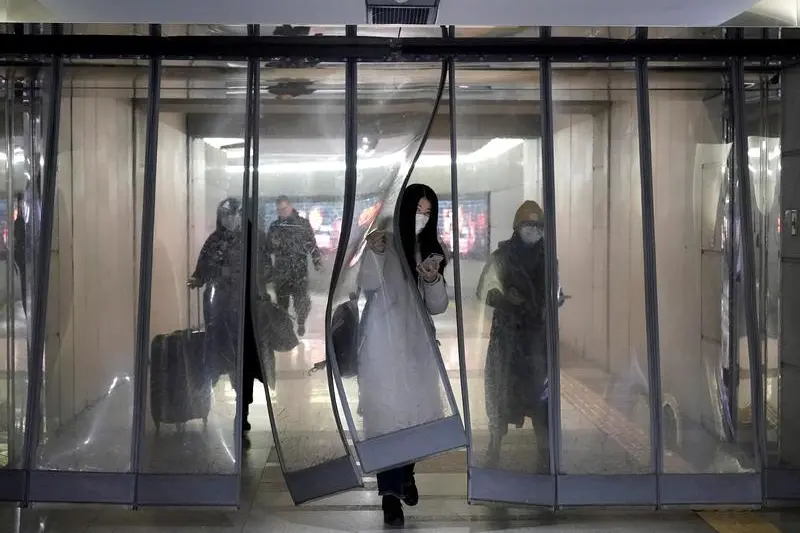PHOTO
MILAN/LONDON - A deadly virus has erupted in China ahead of the key Lunar New Year holiday. Compared to the Severe Acute Respiratory Syndrome (SARS) outbreak in 2003, the damage to luxury stocks so far looks modest. Yet Chinese shoppers have since grown into the biggest spenders in the $310 billion revenue market. If the disease continues to spread, the overall hit for the likes of Richemont or Kering could be worse.
The coronavirus, which Chinese authorities say has infected 291 people and killed six, can be passed from human to human, with some cases identified as far as Thailand and Taiwan. And, with millions of Chinese preparing to reunite with family members or travel abroad to celebrate the festive season, the risk of contagion is growing. Since the 2003 SARS outbreak, which killed nearly 800 people globally, China has built an extensive domestic high-speed rail network, and air travel has become popular.
Top sellers of expensive bags and bracelets such as LVMH , Kering and Richemont have lost between 5% and 6% of their value in less than a week on reports of the virus. That is still a long way to go from the fall of around 33% that Kering’s stock suffered in the first three months of 2003, the most severe of the SARS crisis, or Richemont’s 28% decline.
Yet luxury companies, which are already reeling from riots in Hong Kong, look more vulnerable now than in 2003. If Beijing doesn’t manage to control the disease, consumers are likely to steer clear of public spaces, such as malls and airports, where most sales happen. Back in 2000, Chinese shoppers, whether at home or abroad, represented only 1% of global high-end sales, but their appetite for bling has boomed in the past decade. In 2018, they represented 33% of the industry’s global revenue, says Bain & Co. That implies that each month of crisis would affect nearly 3% of the industry’s annual sales.
Given their China dependency, luxury goods players have no easy way to cushion the blow. They can try to sell more goods online, but that only accounts for a small portion of high-end sales. And voracious Chinese demand cannot easily be replaced by consumers in other countries. China’s latest crisis leaves the bling giants exposed.
CONTEXT NEWS
- Authorities in China confirmed on Jan. 21 that a new disease, the coronavirus, could be spread through human contact.
- China has confirmed 291 cases of coronavirus as of Jan. 20, according to Chinese state media.
- The outbreak, which began in the central city of Wuhan, comes as millions of Asians prepare to travel to celebrate the Lunar New Year holiday.
- Shares in European luxury stocks were down between 2% and 4% on Jan. 21 on concerns over the spread of the virus.
- Chinese shoppers represented 33% of the global luxury market in 2018, according to Bain & Co.
- Shares in Gucci-owner Kering and Richemont were down around 4% at 1105 GMT on Jan. 21, while LVMH was down 2.8%.
(Editing by Neil Unmack and Oliver Taslic)
© Reuters News 2020




















